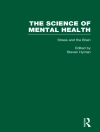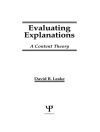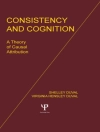This book focuses on well-being at school in association with positive peer relationships and bullying. Taking an integrative and community-based approach, the book outlines the significance of student-school relationships for well-being and emphasizes the importance of school and classroom climate for promoting well-being. Embedded in research and theory, the book reflects the belief that all of our dealings with children and young people in whatever role, whether as parent or teacher or in some other capacity, are bounded by theory, either implicit or explicit. The book highlights the role of partnerships and linkages in addressing school-based well-being and anti-bullying programs. It pays special attention to the barriers and facilitators that schools must address in engaging with external agencies to deliver strong evidence-based initiatives. The international concern with school bullying is given particular consideration in relation to its impact on the well-being of all involved. A feature of the text is the focus given to the implementation of programs into the busy and complex world of schools and classrooms recognizing that the effectiveness and impact of any school-based program is strongly related to the quality of its implementation. The text reflects a commitment of the authors to a broad-based systemic view of development, taking into account family, school, community and culture as influential factors. The text incorporates a number of pedagogical features e.g. classroom based activities and discussion starters, reflections on points raised in the text, and case studies. This book is of special interest to teachers, school counselors, educational psychologists and mental health professionals working in school settings.
表中的内容
Chapter 1. Well-Being at School.- Chapter 2. School/ Community Based Interventions for Well-Being.- Chapter 3. An International Overview of Programs Addressing School Based Mental Health.- Chapter 4. Student’s School Relationships.- Chapter 5. School and Classroom Climate and Well-Being.- Chapter 6. School Bullying, Victimization and Pro-Social Behaviour.- Chapter 7. Bullying and Victimization: A Global Perspective.- Chapter 8. Anti-Bullying Interventions.- Chapter 9. Implementing a School/ Community Partnership.- Chapter 10. Epilogue.
关于作者
Phillip Slee is Professor in Human Development in the School of Education and is a trained teacher and registered psychologist. He is also Director of the Student Wellbeing & Prevention of Violence (SWAPv) Research Centre at Flinders. Professor Slee has published extensively in the field of child development, bullying, school violence and stress, and has produced educational resources in the form of videos and resource packages. He has presented his work nationally and internationally in workshops and lectures. Presently, he is undertaking a number of international research projects on the topic of school violence with researchers from Japan, Korea, China, Canada, England, and the USA. Grace teaches pre-service primary and secondary teachers and works collaboratively with other researchers at Flinders University. She also supervises research projects of postgraduate students. Grace has been involved with the team working on the Australian child wellbeing project, the qualitative data collection and analysis of the Kids Matter evaluation, and with the data collection and statistical data analysis of a bullying intervention, which formed part of the ARC Southern Schools Project. In her teaching, Grace lectures in science curriciulum topics, assisting pre-service to develop science pedagogy for primary and secondary science. Her background includes research on adolescent health with CSIRO and with adolescent offenders at the Office of Crime Statistics and Research (OCSAR) in South Australia. A former high school teacher her interest in adolescent behaviour and well-being continues to be the major focus of her research and she is a member of the Student Wellbeing & Prevention of Violence (SWAPv) Research Centre at Flinders University.












